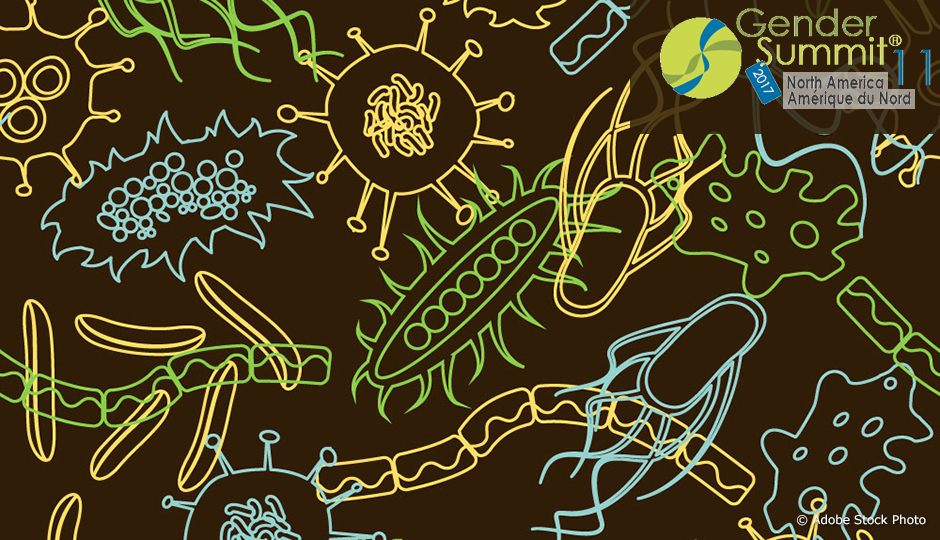Human beings are made of microbes. Trillions of microorganisms – bacteria, viruses, fungi – colonize our bodies, especially our digestive systems, and have an impact on our health. However, little is known about the interactions between the different microbial species. This led Corinne Maurice, a professor in the Department of Microbiology and Immunology at McGill University, to put the medical approach aside and to consider the microbiome – the human body and its microbes – as a natural ecosystem. This innovative vision resulting from her studies in aquatic microbial biology will provide her with a better understanding of the role played by bacteria-infecting viruses called bacteriophages and could eventually lead to their use in treating disease.
From lakes to humans
During her postdoctoral studies, Corinne Maurice pioneered the adaptation of flow cytometry for use with the human organism. This technique for aquatic environments makes it possible to individually characterize bacteria suspended in a liquid by making them pass at high speed through a laser beam. Today the scientist uses it in combination with electron microscopy, fluorescence and DNA sequencing to better understand the interactions between the microorganisms in our bodies. “I consider a human body to be like a lake that is host to a unique community of microbes,” explained the researcher. “Just as I would do for a body of water, I try to understand the nature of the active microorganisms in the gut rather than simply identifying them. What roles do they play? What nutrients do they consume? How do they interact in a healthy individual versus a sick individual?”
This original approach resulted in Corinne Maurice being named the Canada Research Chair in gut Microbial Physiology at the age of 32 and, a year later, a CIFAR-Azrieli Global Scholar in the Humans and Microbiome Program. The CIFAR-Azrieli Global Scholar program recognizes exceptional early career investigators, providing them with funding and integrating them into a global network of leading researchers in their field.
Research-family balance
This rise to the higher spheres of research was not without sacrifices. “For 15 years, I hardly put away my suitcases!” observed Maurice, who left her native Mauritius Island to continue her studies at Université de Montpellier 2 in France, and then at Harvard University. It was in Montréal that she finally ended up unpacking her suitcases and deciding to start a family. Now pregnant with her first child, the 34-year-old young scientist feels ready to reconcile research with family life, unlike several of her colleagues who left university, discouraged by the financial instability and frequent traveling of graduate studies. And for those who do embark on the adventure, maternity slows down scientific production, which does not always look good in grant applications. Corinne Maurice hopes that attitudes will change, removing biases and encouraging women to enter the world of science. This mother-to-be is sure to help pave the way for the next generation…






